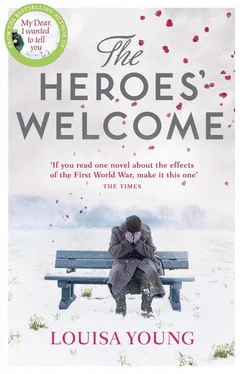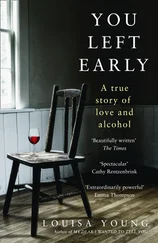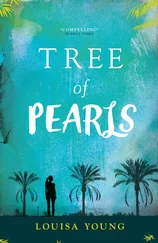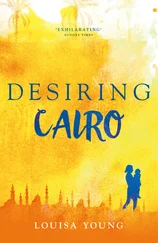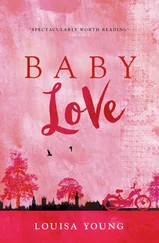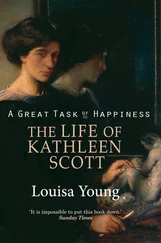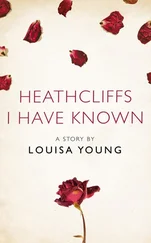She was smiling up at him – nervously? He didn’t want to make her nervous.
It was pretty clear to him that she couldn’t want him that way. Damaged as he was. How could she?
She was thinking: Why did I say that, on the landing? ‘It doesn’t matter?’ What doesn’t matter?
She’d felt foolish even before the words came out. She thought: I’m sure he would want me, if he was physically, um … She was thinking: I must not pressurise him … but he hasn’t – since – and he’s had so much morphine, over the past years … She didn’t know, actually, if he was still taking it. There were areas of his life where his independence and his privacy were so important to him, which was quite right . Quite right. She had been watching him, cautiously. He did not seem to see himself as a patient, or a cripple, and she was not going to tell him that he was. She didn’t know if he was or not. Even if she had an opinion, it was not her decision.
She had been thinking about this moment for weeks. Something would change, now they were married. The most important thing (which she had borne in mind all winter, and was, she felt, doing well at integrating) was that, specially as she had been a nurse, she absolutely must not become his nurse. But this vital consideration made it difficult for her to, for example, enquire about whether the morphine had affected his … Hm.
To be blunt …
She didn’t know if he would be physically capable. She didn’t know how to ask. Or if she wanted to ask. She hadn’t wanted to spoil anything by asking. They had always been so magically immediate with each other, understanding, catching eyes. Since they were children they’d had that! Apart from the one great stupid error, his attack of spurious honour, of over-gentlemanliness, when he’d told her he had a girl in France, when in fact there was no girl, it was that he hadn’t wanted to inflict his wounds on her – oh, Lord, the kindness he had meant by that, and the arrogance … Apart from that, that little thing , they’d never really had to ask , or explain, about anything. She didn’t want to ask now. She wanted the romantic. She wanted them to be magical, not to have to ask or explain. They had to be romantic. Because if they weren’t romantic, what were they? She was aware how their union could be seen. She was damned if she was going to be seen as his nurse, and him as some pathetic, incapacitated …
Stop it. Nobody thinks that. And who cares if they do?
And a woman is not meant to want it anyway …
Yes, but I’m not that kind of squashed, repressed Victorian woman – and I bet they did want it, they just didn’t dare say …
And …
He came back in his pyjama bottoms. His face, so extraordinary. His mouth. The beautiful upper lip, the battlefield below. The skin above smoothed ivory by morphine, the scars below carefully shaven, not hidden, not displayed, only the moustache worn a little long, like the hair of his head, so as not to frighten people too much. His beautiful grey eyes. Twenty-three years old, looking a hundred. She watched his arm reaching in the shadow to turn out the lamp: the long scar from the Somme streaked across the muscle, shining. The glow from the streetlight outside fell on his strong back, the shape of his shoulders, the curve of his spine. He reached for his pyjama top and she said, ‘Don’t.’ And saw him misunderstand it.
He pulled it up over his shoulders.
‘No,’ she said. ‘I didn’t mean …’ and as he came to lie by her she slid her arms inside the shirt, and he sighed.
And one thin layer of tension flew off him – but …
But what about my mouth? he thought. I don’t … She can’t …
They didn’t kiss. They lay entwined on the cool sheet. Awake. Unconsummated.
She doesn’t want it , he thought. I mustn’t.

He’s not … He can’t , she thought. And I can’t—
Well.
If that’s it …
I must respect that.

The proximity of flesh was irresistible. Riley bit his tongue, natural upper teeth to false lower, and rolled over, so his back was to her, so she would not notice.
Oh, she thought.
After quite a long time, they went to sleep.
The day after the wedding, they went to Nadine’s parents’ house on Bayswater Road. She had not been home since the end of the war. Not for Christmas. Not at all. She had written bland letters to her mother saying she was all right, and less bland ones to her father saying she would come soon, but the fog of shock and exhaustion in which they had been dwelling at that time had prevented her from properly recognising the cruelty of staying away. Neither she nor Riley had even told their parents where they were living. It had been part of the silent arrangement. Nothing, till spring. Just a suspension between past and present which allowed them to attend to neither.
They stood on the steps in the front garden, their backs to Kensington Gardens, the door shiny before them, and each gave the other a brave look as Riley rang the bell. Nadine took Riley’s hand, and he felt the flow of feeling shared and supported by the physical union: two bodies stronger than one, two hearts more capacious. Being – becoming – more than the sum of their parts.
A maid answered, and he wondered what had become of Barnes: perhaps he joined up after all. Perhaps he got killed. Or perhaps he got that guesthouse with Mrs Barnes. Let’s hope so. It’s been six months since the end.
Lady Waveney was home, and Sir Robert too, the maid said, Who could she say was calling?
‘I’m Nadine,’ said Nadine, and the girl blinked, and said: ‘Oh! She’s in there, Miss …’, and stared: the prodigal daughter returning, and with a wounded officer …
Riley knew the look, and what it meant: Oh my word, oh poor thing, such nice eyes, and it’s not right to stare, but how can she bear him? He didn’t stare back at the maid. And when he and his bride went into the beautiful, unchanged, unforgotten drawing room, all velvets and spring light and rather good paintings, he allowed his new mother-in-law a few moments, too, to look at his face, before he looked up at hers. His determination and habit was to wear his scars without apology but with kindness. The last time they had met (Jacqueline, Lady Waveney, what was he meant to call her?), he had had only his scar from Loos, the little dashing cut on his cheekbone, the clean, romantic, officer-in-a-duel-of-honour scar. So he would be a shock, with his reconstructed jaw, his twisted mouth, his slightly too-long hair lying only slightly effectively over the scars where the skin flaps had been taken from his scalp and brought down to cover his new chin. He was beginning to realise that he did not know what he looked like to anyone else. People said his surgeon, Major Gillies, had done a good job, and Major Gillies himself said it had healed well, and Riley chose to believe this was true. It would have been unhelpful to do otherwise. However. He had learnt that he had to be patient, and allow everyone who saw him their own response, and if necessary lead them through their shock and doubt to the fact that he had accepted his lot. This despite the fact that his speech was not entirely clear. Oh, and he had to let them understand that unclear speech did not equate to an unclear mind. This too was turning out to be part of his responsibility, every time he spoke to someone new. Or, indeed, someone from before. He hadn’t on the whole been meeting new people.
Читать дальше
